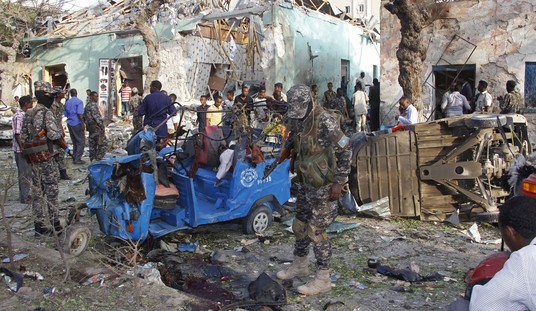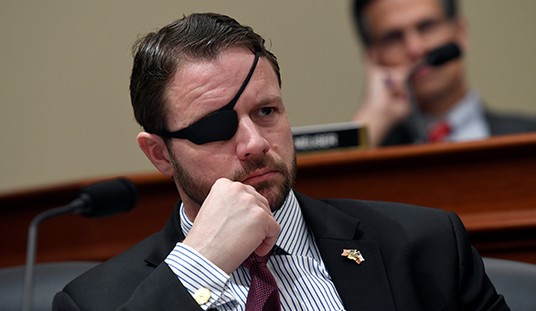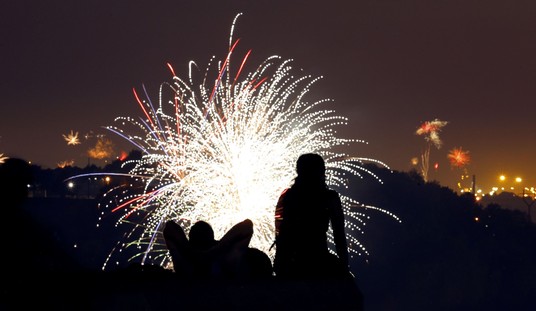Lebanon is a sad country today.
Michael Young, opinion page editor of Beirut’s Daily Star, wrote Gebran Tueni’s eulogy — the second time this year he has had to do this for a friend and colleague murdered by a Syrian car bomb.
It seems only yesterday that I watched as a stunned Gibran Tueni looked down at the crumbled body of journalist Samir Kassir, shortly after the latter’s assassination in his car on an Achrafieh street. Perhaps it was his own death that Tueni saw foretold; or more likely he was trying to come to grips with what was then the still-novel happening of seeing journalists and politicians butchered at the start of their working day.
An-Nahar has paid too high a price for its criticism of the Syrian regime. Tueni himself only recently returned from a spell in Paris, well aware of the dangers to his life. It is to his considerable credit that he accepted the risk of an uncertain homecoming, though how desirable, in hindsight, it would have been for him to spend his days working out of his home – isolated, but safe from the death squads dispatched to liquidate him.
That Tueni’s death was linked to the Mehlis inquiry, and reports that the German investigator would name Syrian suspects in his latest report, cannot be doubted. At the least this murder must be dealt with in a different way by the international community, because the United Nations investigation will take many more months – time enough to kill many more people. What happened on Monday was a finger in the eye of the Security Council, and few could miss that the road on which Tueni was killed is essentially the same one used on a regular basis by UN investigators descending to Beirut from their Monteverde redoubt.
In killing Tueni, the murderers hoped to strike a mortal blow at Lebanon’s most prestigious newspaper. For them, the real danger has always been independent thought – against which they can only muster media that threaten, crowds that threaten, and security services that best them both by implementing the threats. Ideas are absent from their endeavors; human development is absent; amelioration is absent; self-determination, freedom, imagination are all absent, crushed by a regime that can only warn that if it goes down, the region will go down with it.
There are those who cretinously swallow that contention hook, line and sinker; who argue that the gentlemen in Damascus must be left alone, maintained, because their departure might indeed bring disorder. That incredible interpretation somehow assures us that Gibran Tueni was, in the end, a martyr to order. A remarkable order it is, then, the very same that protected Saddam Hussein until 2003, and that today props up the authority of a cornucopia of greater and lesser criminals, from Nouakchott to Sanaa, wardens all of what Ghassan Tueni has called “the great Arab prison.”
[…]
A rapid sign of daring would be for Prime Minister Fouad Siniora to compel the government to endorse an international tribunal in the Hariri case as soon as possible. If Hizbullah opposes the measure and threatens to withdraw from the session, or from the government, then the ministers must go ahead and vote anyway. The majority will win. A Lebanese consensus should not mean giving a minority the right of veto when it means defending against state-sponsored terrorism. The message on a tribunal will have a strong impact in New York, where the Security Council must know Lebanon is willing to partly internationalize its security, since it has been left with no other choice.
None of this will bring Gibran Tueni back, nor his charm, elegance and perpetual dissent. Nothing will reassure us that the venerable An-Nahar can survive this latest crime. Ghassan Tueni will soon have to bury another child, the most heartbreaking duty of all. But deep down it’s another wish we have: that the Tuenis, Ghassan but also Gibran’s widow and children, will stick to their guns and demand that the truth come out. At the end of the day, his murderers remain most afraid of one thing: the truth.
The great Syrian poet Adonis, who lives now in Beirut and Paris, wrote a letter to Gebran’s father Ghassan who has now had to bury three of his children. It was published on the front page of An Nahar newspaper. (Translation from Arabic by Tony Badran.)
Dear Ghassan,
You know better than all of us, you the wise experienced one, that fatherhood in such a moment, as it bows under the weight of the tragedy, must also explode like springs from the earth.
I know you are the person most deeply worried about what’s being imposed on us in Lebanon: to live only with ghosts. Ghosts of destruction and murder. Not the destruction of matter alone, or the body alone, but also the destruction of the spirit and the mind and the intellect. Life — soaked in a moving carcass, and the human being — poured into a temple of terror: that is the Lebanon that they want for us today.
They want us to be cornered into a spot where it would seem as if death — by murder — is the only thing we see before us. It’s as if it’s imposed on us all to declare fear and succumb to it.
In your remarkable experience, in your epic life, dear friend, we find what teaches us to overcome the fearsome and the tragic, and what pushes us to open our bosoms to the truth, and to our right to it, which is our right to life.
In them also we find what tells us: if we must die — murdered — then let us die standing on the peak of light.
Adonis
(Paris, 12/12/2005)









Join the conversation as a VIP Member